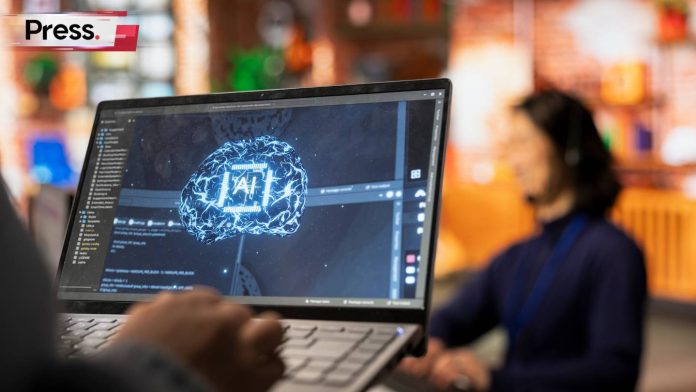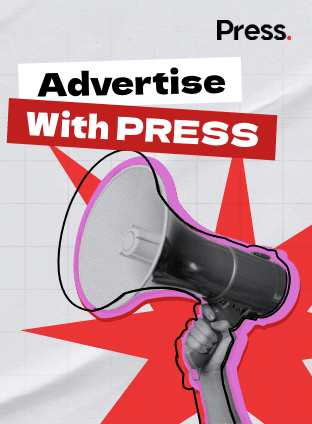Key Takeaways
- SST expansion took effect on 1 July 2025, adding new taxable sectors such as construction, leasing, logistics, finance, and private education.
- Registration is mandatory once annual turnover exceeds RM 500 000 (or RM 1 million for newly added services).
- Essential goods remain exempt, while luxury and imported items attract 5–10 % sales tax.
- MySST portal registration and accurate invoicing are crucial—charging SST without approval is an offence.
- Timely filing and correct record-keeping help businesses avoid penalties and Customs audits.
Table of Contents
ToggleIn 2018, the Malaysian government introduced the Sales and Service Tax (SST) to replace the previously-implemented Goods and Service Tax. This was a divisive move, with some complaints about the SST implementation being too hasty (Source: InternationalTaxReview.com), but the Malaysia SST tax was introduced regardless.
On the 1st of July 2025, after 7 years without any significant changes to this tax, the SST expansion took place to cover new areas the government deemed necessary to tax. This has reshaped how businesses charge and report taxes.
Whether you run a small service business or a large manufacturer, understanding how the new SST works (and how to register for it) is now essential to comply with the new rules and avoid penalties
What Is the Malaysia SST (and How Does it Work?)
The SST was implemented as a single-stage consumption tax, and that has not changed. It is charged only once, either at the manufacturing or service level.
| Type | Who It Applies To | Standard Rate | Examples |
|---|---|---|---|
| Sales Tax | Manufacturers or importers | 5% or 10% | Electronics, luxury goods, imported foods |
| Service Tax | Service providers | 6% | Hotels, accountants, logistics, e-commerce platforms |
Key point: SST does not offer input tax credits. Businesses cannot claim back tax paid on raw materials or supplies.
(Source: RMCD MySST Official Guide, 2025.)
Read More: What’s the Tax on the Bill? Understanding GST & SST in Malaysia
What Changed in the 2025 Malaysia SST Expansion
The Royal Malaysian Customs Department (RMCD) introduced significant updates to the Malaysia SST framework with the July 2025 expansion. Their stated goal was to widen the tax base and reduce reliance on GST-style systems.
Here’s what you should know about the changes since July 2025:
- More taxable services: Leasing, logistics, construction, finance, and private education are now included.
- Wider sales tax scope: Certain luxury goods and imported items now face 5% or 10% sales tax.
- Higher registration thresholds: RM 1,000,000 for new service categories (vs RM 500,000 before).
These updates aim to improve fairness while keeping essential goods, local produce, and basic services exempt from taxation.
(Sources: Ministry of Finance Malaysia, The Star (Malaysia), 9 June 2025; KPMG Malaysia Tax Update June 2025.)
Who Needs to Register for SST (2025 Rules)
Different industries are subject to different tax thresholds. If your business turnover exceeds the required annual threshold, registration is mandatory.
| Business Type | SST Type | Registration Threshold | Examples |
|---|---|---|---|
| Manufacturer | Sales Tax | RM 500,000 | Furniture maker, food producer |
| Traditional Services | Service Tax | RM 500,000 | Accounting, consulting, digital services |
| Restaurant / Café | Service Tax | RM 1,500,000 | F&B outlets, catering |
| New Sectors (Post-Expansion) | Service Tax | RM 1,000,000 | Construction, leasing, finance |
| Foreign Digital Providers | Service Tax | RM 500,000 | Netflix, Canva, Google Workspace |
A company is required to register for SST declaration by the end of the following month after crossing the threshold.
SST Exemptions After the Expansion
Many essentials remain exempt under the expanded tax scheme, to protect households and SMEs.
| Category | Examples | SST Status |
|---|---|---|
| Basic food items | Rice, vegetables, eggs, poultry | Exempt |
| Education | Books, stationery, school supplies | Exempt |
| Healthcare | Medicines, hospital services | Exempt |
| Agriculture | Fertilizers, feed-stock, seeds | Exempt |
| Exports | All manufactured exports | Zero-rated |
| Luxury goods | Designer bags, truffles, antiques | 5–10% tax |
Beauty services and imported fruits (apples, oranges, mandarins, dates) were removed from the taxable list after public feedback.
How to Register SST Online (Step-by-Step Guide)
You can register your company directly and easily through the MySST Portal.
Here’s a simplified step-by-step breakdown:
1. Check Eligibility
Confirm your business type and annual turnover against the thresholds above.
2. Prepare Required Documents
- SSM business registration certificate
- Bank statements (for proof of turnover)
- Sample invoices or contracts
- NRIC (for sole proprietors)
3. Create a MySST Account
Go to the portal linked above and sign up using your business details.
4. Select the Correct Tax Type
Choose either Sales Tax or Service Tax, depending on your business activity.
5. Fill and Submit Application
Upload supporting documents and submit the form. RMCD typically verifies your application within 5–10 working days.
6. Receive SST Registration Number
You’ll get an approval letter and SST number by email once verified.
7. Start Charging SST
Charge SST from the effective date in your approval notice.
For businesses in newly taxable sectors:
If you exceeded the RM 1,000,000 threshold after July 2025, you must register immediately to avoid late penalties.
Read More: AI, Automation & Tax Technology in Malaysia
After Registration: Your SST Responsibilities
Once registered, you must comply with Malaysia SST filing and payment requirements:
- File SST-02 returns monthly or every two months.
- Pay SST via FPX or directly at Customs counters.
- Keep proper records of business transactions and tax declarations for at least seven years.
- Include SST number and amount on all invoices.
- Remember to update accounting and POS systems for new SST categories.
- Apply for deregistration if your business no longer meets the threshold.
Common Mistakes to Avoid (and Why They Matter)
1. Charging SST without a valid registration number
Some business owners start charging SST before their registration is approved, assuming that applying is enough. This is a major compliance issue because:
- Unregistered collection is illegal. You cannot legally collect SST without an official registration number issued by the Royal Malaysian Customs Department (RMCD).
- Customers cannot claim SST payments. If you charge SST without being registered, clients may refuse payment or report you to Customs.
Penalties apply. RMCD can fine businesses up to RM 50,000 or impose imprisonment for issuing tax-inaccurate invoices.
Always wait for your official Malaysia SST approval letter before charging customers.
2. Assuming “Service Charge (10%)” is the same as Service Tax (6%)
Many restaurants and service businesses confuse the two, but they are completely different:
- Service Charge (10%) is a voluntary business fee (e.g., restaurant service charge) kept by the business or distributed to staff.
- Service Tax (6%) is a government tax that must be collected and remitted to RMCD.
Mixing them up can lead to: Double-charging customers or charging incorrectly, or underpayment of actual SST, which results in backdated liabilities. Make sure your invoices clearly separate “Service Charge” (if any) from “Service Tax (SST 6%)”.
3. Forgetting to update systems with new SST rates or categories
After the 2025 expansion, new industries and tariff codes were added, and some rates changed. Failing to update your accounting or point-of-sale (POS) system means:
- Invoices might reflect wrong rates or missing tax fields.
- Returns may be incomplete or inaccurate, triggering Customs audits.
- Ineligible exemptions might still be applied for services that became taxable under the new regime.
Review your accounting software, tax templates, and inventory systems regularly to match the latest RMCD tax codes.
4. Missing filing deadlines or under-declaring sales
Malaysia SST returns must be submitted monthly or every two months depending on your registration. Neglecting this leads to:
- Automatic late payment penalties (10%–40% surcharge, depending on delay).
- Audit flags for inconsistent reporting.
- Loss of trust and credibility with clients and RMCD.
Set automated reminders for SST-02 filing and always cross-check your declared figures with your accounting records before submission.
Penalties for Non-Compliance
As of 2026, RMCD will fully enforce penalties for late or missing registrations.
| Offence | Penalty |
|---|---|
| Failure to register | Fine up to RM 50,000 or 3 years’ jail, or both |
| Late SST payment | 10%–40% surcharge, depending on delay |
| False declaration | Backdated SST assessments and fines |
Tip: Voluntary disclosure is still encouraged if you missed the earlier registration window.
Final Thoughts
The Malaysia SST expansion is now fully operational, bringing more sectors under Malaysia’s tax system. If your business operates in construction, leasing, logistics, or financial services, registration is no longer optional—it’s a compliance must.
Early registration and accurate record-keeping will help you avoid costly fines and stay ahead of RMCD audits. For smoother compliance, use accounting software integrated with Malaysia SST or consult a certified tax professional. Be sure to partner with a reliable firm like Press PR Agency, one that can help you navigate the complexities of Malaysian business and tax compliance.
Frequently Asked Questions About SST
Do I Need to Re-Register After The Expansion?
No, existing SST-registered businesses only need to add new service categories where relevant.
How Do I Confirm My Registration?
Search your business name or SST number on the Registered Persons Search tool at MySST.
Are Freelancers or Online Sellers Taxed Under SST?
Only if they provide taxable services and exceed the RM 500,000 threshold.
What If I Miss Registration in 2025?
Register immediately; RMCD begins full enforcement in 2026 with active audits.
Are Beauty And Personal-Care Services Taxable Now?
No. They were removed from the expansion after public feedback in June 2025.
How Do I Correct An SST Mistake After Submission or Payment?
If you realise you made an error (for example, over-declared or under-declared tax), you can file an amended return or submit a voluntary disclosure to the Royal Malaysian Customs Department (RMCD).


